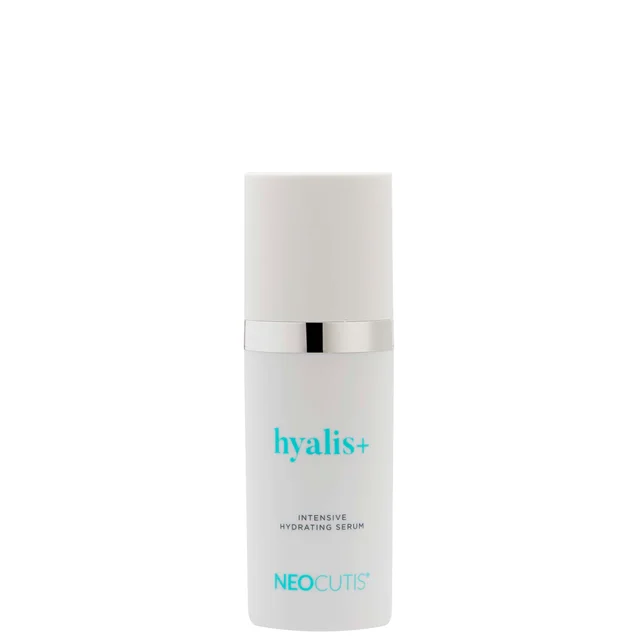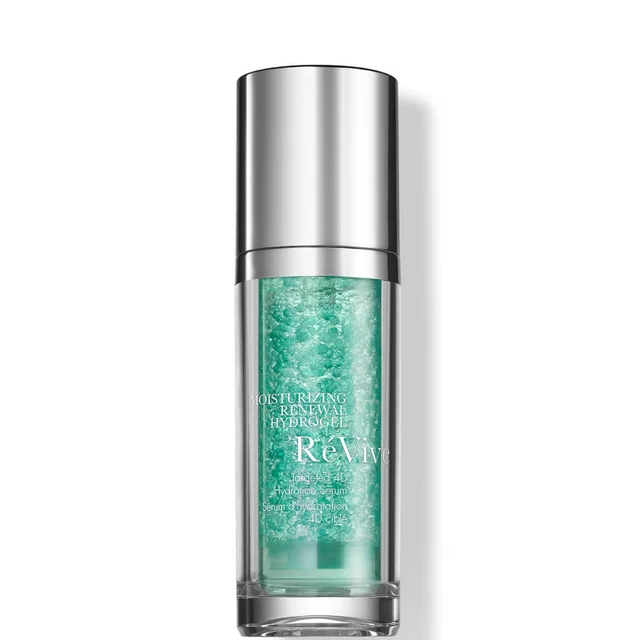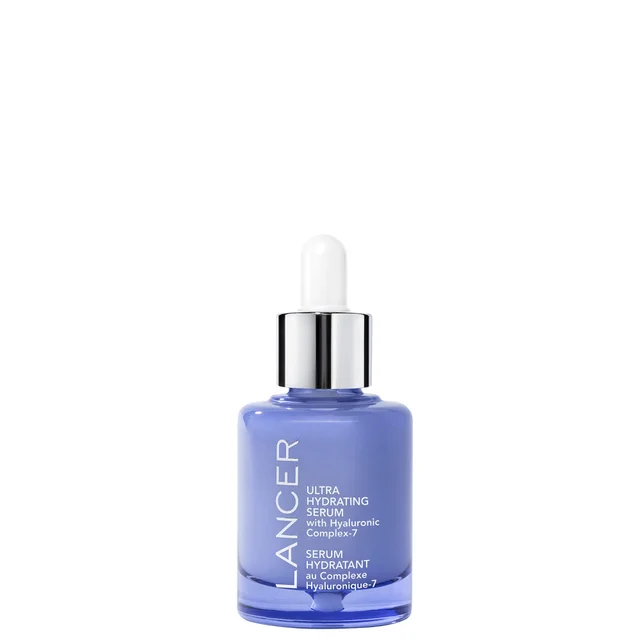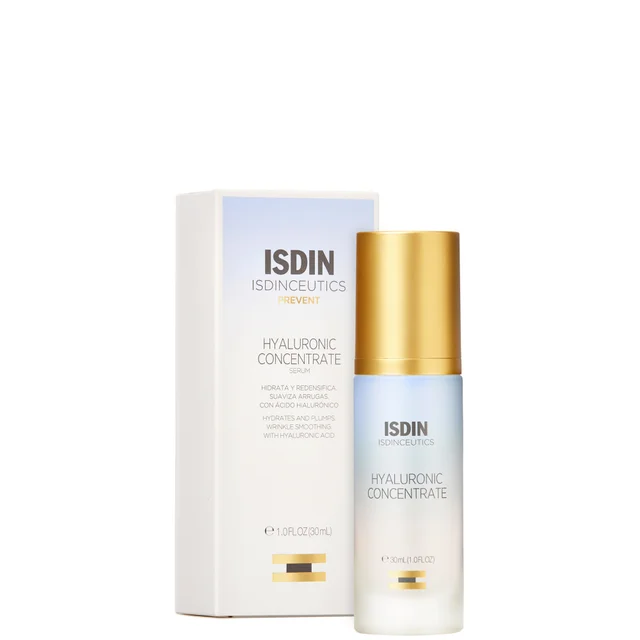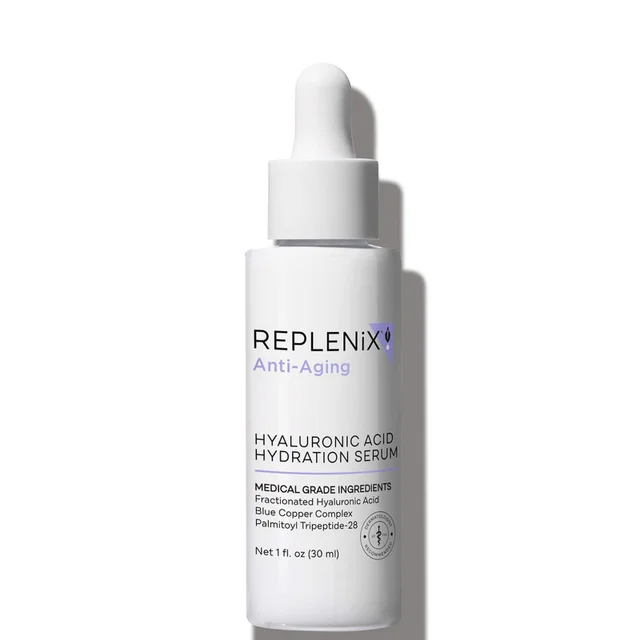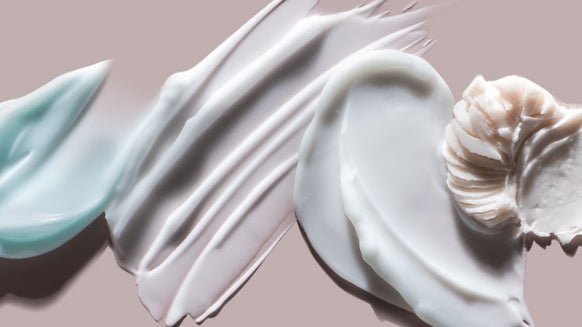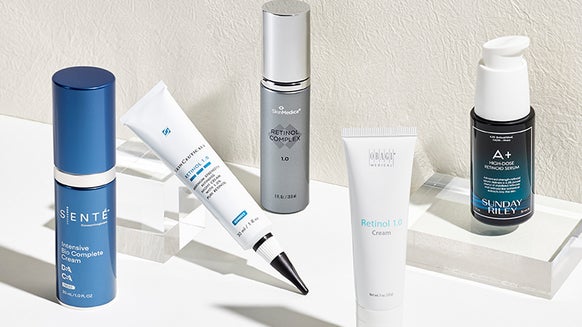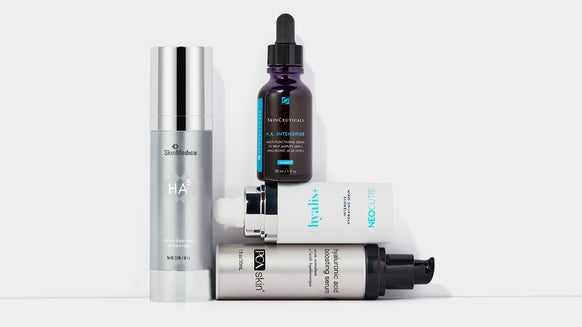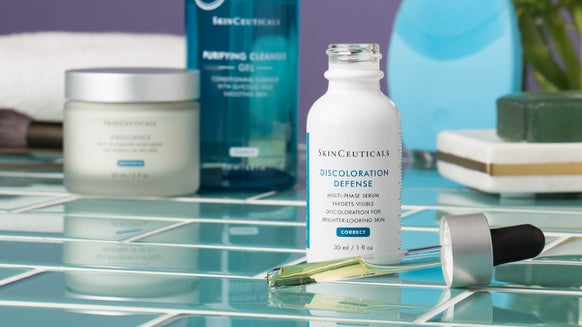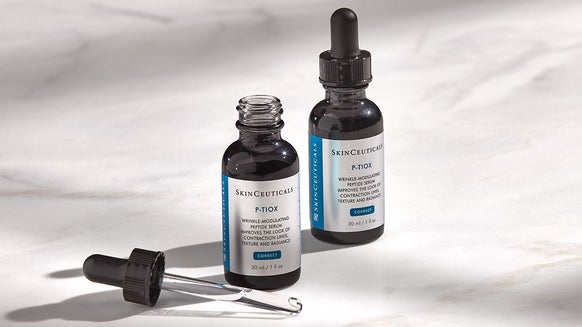A Definitive Guide to Hyaluronic Acid, According to Beauty Experts
In the world of skincare, hyaluronic acid often stands out as a buzzword that many have heard but few understand. Its complex name and technical-sounding claims can be overwhelming, leaving many people confused or feeling intimidated. Here’s the truth: hyaluronic acid is a skincare superstar with benefits that everyone can enjoy! Whether you’re new to skincare or have been overcome with mixed messages from social media and online sources, this guide will simplify hyaluronic acid. We’ll break down what it is, how it works, and why it should be a staple in your skincare routine.
Meet the Experts
- Lindsay Holdorf, Licensed Esthetician
What Is Hyaluronic Acid?
Hyaluronic acid is a naturally occurring substance in your body known for its ability to retain moisture. Found in connective tissues, this powerful compound acts like a sponge, drawing in and holding onto water. It’s recognized for its ability to hold up to 1,000 times its weight in water, making it a key player in maintaining skin's hydration and elasticity. As we age, our body’s natural production of hyaluronic acid decreases, which can contribute to dryness and the formation of fine lines. That’s where topical hyaluronic acid comes in, by applying it through serums or moisturizers, you can boost your skin’s hydration levels and restore a youthful, dewy glow.
Suitable Skin Types for Hyaluronic Acid
One of the best parts of hyaluronic acid is its compatibility with nearly all skin types!
Dry Skin: Hyaluronic acid is especially beneficial for dry skin as it helps attract and retain moisture, providing much-needed hydration. Oily Skin: Even if you have oily skin, hyaluronic acid can be a great addition to your routine. It hydrates without adding excess oil or causing breakouts. Sensitive Skin: Because it is gentle and non-irritating, hyaluronic acid is suitable for sensitive skin types. It helps to soothe and hydrate without causing redness or irritation. Combination Skin: For those with combination skin, hyaluronic acid balances hydration across different areas of your face, ensuring that both dry and oily zones receive the moisture they need.
Key Benefits of Hyaluronic Acid
Deep Hydration: Its ability to hold up to 1,000 times its weight in water means that it provides deep, long-lasting hydration. Plumps Skin: By binding with water, hyaluronic acid helps to plump up the skin, reducing the appearance of fine lines and wrinkles. Improves Skin Texture: Regular use can lead to smoother, more even skin texture. Boosts Skin Elasticity: Hydrated skin maintains its elasticity better, helping it to bounce back and resist sagging or loss of firmness. Supports Skin Barrier Function: A well-hydrated skin barrier is crucial for overall skin health. Hyaluronic acid helps to reinforce the skin's natural barrier, protecting it from environmental stressors and improving its ability to retain moisture
Are There Potential Side Effects of Hyaluronic Acid?
Hyaluronic acid is a low-risk ingredient with minimal side effects. It is generally safe and beneficial for most people, however as with any skincare ingredient, there is a small chance of adverse reactions. While rare, some individuals may experience an allergic reaction to hyaluronic acid. Symptoms could include redness, itching, or swelling. Hyaluronic acid is typically gentle, but it can interact with other active ingredients in your skincare routine. For instance, combining it with products that have strong acids or exfoliants might increase sensitivity for some people. If you’re using multiple active ingredients, consider introducing them gradually and monitoring your skin’s response.
How to Use and Apply Hyaluronic Acid
Start with a Clean Face: Begin by cleansing your skin to remove any makeup, dirt, or impurities to ensure that your skin can fully absorb the hyaluronic acid. Apply to Damp Skin: For best results, apply hyaluronic acid to damp skin. The presence of moisture helps hyaluronic acid attract and lock in additional hydration. Use a Small Amount: A little goes a long way. Apply a few drops of hyaluronic acid to your face and gently pat or press it into your skin. Follow with Moisturizer: To seal in the hydration, follow up with your regular moisturizer. This helps to lock the hyaluronic acid in place and prevent moisture loss.
Hyaluronic Acid vs. Niacinamide
When comparing hyaluronic acid and niacinamide, it’s important to understand that both ingredients offer unique and valuable benefits for your skin. Hyaluronic provides deep hydration in the skin by attracting and retaining moisture. Niacinamide, also known as vitamin B3, is a versatile ingredient known for its ability to improve skin texture, reduce redness, and even out skin tone. It strengthens the skin barrier and can help address issues like hyperpigmentation and enlarged pores. Both ingredients complement each other well and can be used together in a skincare routine. They can provide a comprehensive approach to hydration, brightening, and overall skin health.
Now, Shop the Best Hyaluronic Acid Serums
1. Medik8 Hydr8 B5 Intense Serum
This serum delivers long-lasting moisture, clinically proven to enhance skin hydration instantly and over time, even for dry and dehydrated skin. It visibly plumps and firms the skin, restoring a supple and bouncy appearance.
Key Ingredients: Hyaluronic Acid Complex, Vitamin B5, Sodium Hyaluronate
Skin Type: All Skin Types
Esthetician Tip: Apply it to slightly damp skin to maximize its hydrating effects. Follow up with your favorite moisturizer to lock in the moisture and enhance the serum's plumping and firming benefits.
2. Neocutis HYALIS Intensive Hydrating Serum
This oil-free serum provides advanced hydration, helping to maintain natural hyaluronic acid levels in the skin. It delivers intense moisture, leaving the skin smoother and softer while reducing the appearance of fine lines and wrinkles. Hyalis+ also alleviates dryness from environmental or hormonal changes and soothes stressed skin after cosmetic procedures.
Key Ingredients: Sodium Hyaluronate, Sodium Polyglutamate, Acetyl Glucosamine
Skin Type: All Skin Types
Esthetician Tip: Gently press it into the skin using your fingertips, which helps promote deeper penetration. Use it in the morning and evening for continuous hydration and to maintain a youthful, plump complexion.
3. RéVive Moisturising Renewal Hydrogel Targeted 4D Hydration Serum
A revitalizing gel that provides deep hydration and nourishment. The formula includes moisturizing beads with jojoba, lavender, and tea tree oils to soothe redness and irritation, while aloe vera, cucumber, and chamomile extracts enhance calmness and hydration. Plus, it promotes skin renewal, revealing a brighter, smoother complexion.
Key Ingredients: 4D Hyaluronic Acid, Natural Soothing Complex, Moisturizing Oil Beads, Bio-Renewal Protein
Skin Type: All Skin Types
Esthetician Tip: Apply it using upward strokes to promote circulation and absorption. Use it both morning and night to maintain optimal hydration and improve skin texture over time.
4. Lancer Skincare Ultra Hydrating Serum with Hyaluronic Complex-7
This lightweight emulsion combines nourishing oils and water actives to protect and hydrate the skin on multiple levels. Featuring a blend of 7 molecular weights of hyaluronic acid, the serum penetrates all skin layers, while ceramides repair the skin barrier and reduce moisture loss. This results in plumper, more radiant skin with improved hydration and a balanced pH, making it less prone to irritation.
Key Ingredients: 7 Molecular Weight Hyaluronic Acid, Olive Extract, Disodium Acetyl Glucosamine Phosphate, Ceramide Complex
Skin Type: All Skin Types
Esthetician Tip: For a refreshed and glowing complexion, use it after a gentle exfoliation. This will allow the serum to penetrate more effectively, providing maximum hydration and a smoother, more radiant skin surface.
5. ISDIN ISDINCEUTICS Hyaluronic Concentrate Hydrating Hyaluronic Acid Serum
A water-gel serum designed to deliver deep hydration with a plumping and smoothing effect for a radiant complexion. This serum provides multi-level hydration, visibly plumps the skin, and softens fine lines. Additionally, it smooths the appearance of pores, leaving the skin ultra-smooth and youthful.
Key Ingredients: Hyaluronic Acid, BioMarine, Dual Peptides, Lentil Extract
Skin Type: All Skin Types
Esthetician Tip: Using circular motions, gently massage over your face and neck until completely absorbed. Water-gel texture glides over the skin and absorbs with a satin smooth finish.
6. Replenix Hyaluronic Acid Hydration Serum
Features fractionated hyaluronic acid for optimal absorption and moisture retention, while an advanced peptide boosts collagen production to enhance firmness and elasticity. Plus, the proprietary blue copper complex not only conditions and hydrates the skin but also helps manage excess oil, leaving the skin brighter, healthier, and replenished.
Key Ingredients: Hyaluronic Acid, Antioxidants, Palmitoyl Tripeptide-28, Zinc PCA, Copper PCA
Skin Type: All Skin Types
Esthetician Tip: Add a few drops to your favorite serum or moisturizer to boost hydration and enhance results.
FAQs
Can You Use Hyaluronic Acid Everyday?
Yes, you can absolutely use hyaluronic acid every day! Daily application helps maintain optimal hydration levels, which can improve skin texture and reduce the appearance of fine lines. Whether you use it in the morning, evening, or both, incorporating hyaluronic acid into your routine can contribute to a healthy, plump complexion without the risk of overloading your skin.
Is Hyaluronic Acid or Retinol Better?
Choosing between hyaluronic acid and retinol isn't about which is better overall, but rather which is more suited to your specific skincare needs. Retinol is a form of vitamin A that stimulates cell turnover and collagen production, making it ideal for addressing signs of aging, such as fine lines, wrinkles, and uneven skin tone. Instead of choosing one over the other, consider incorporating both into your skincare routine. Use hyaluronic acid to keep your skin hydrated and plump, while using retinol in the evening to target aging concerns and improve skin texture.
The Bottom Line
Hyaluronic acid is a powerhouse ingredient that provides deep hydration, plumps the skin, and smooths fine lines, making it suitable for all skin types. Its ability to attract and retain moisture makes it an essential component in any skincare routine, offering visible improvements in skin texture and radiance. Embracing hyaluronic acid can help clarify its benefits and elevate your skincare regimen with a scientifically backed, effective solution for a healthier, more luminous complexion.

Esthetics has been a lifelong passion for Lindsay. Growing up as a dancer fueled her love of makeup and skin care from an early age, ultimately leading her to pursue esthetics school after college. In over five years of experience as a licensed esthetician, she cultivated a diverse skill set, from running her own makeup artistry business and working in a Forbes-listed resort spa, to collaborating with dermatologists and nurse practitioners in performing medical aesthetic treatments. Since then, she has joined the Dermstore team offering virtual consultation services and more to make skin care education easily accessible for everyone, no matter where they're located.
